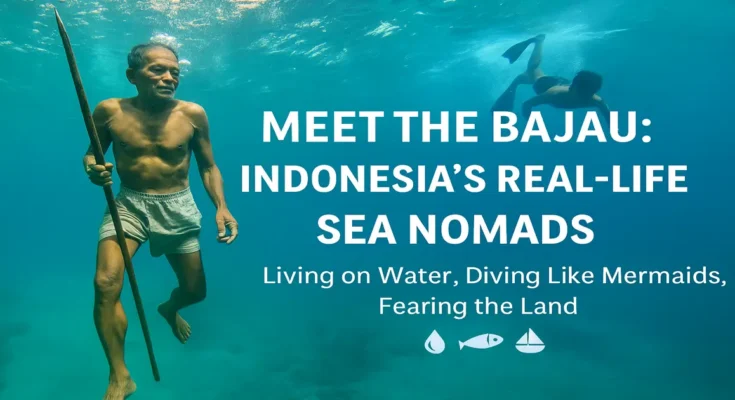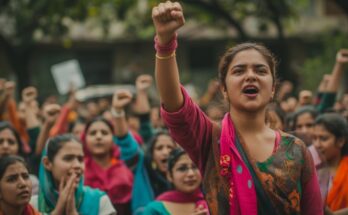Imagine living your entire life on water — diving like a mermaid, sleeping on boats, and barely setting foot on land. This is not a fantasy but the daily reality of the Bajau people, a unique sea-dwelling tribe from Southeast Asia, often referred to as “Sea Nomads” or “Sea Gypsies.”
🧬 Who Are the Bajau?
The Bajau (also spelled Badjao or Bajo) are an indigenous ethnic group traditionally found in maritime Southeast Asia — particularly around the Philippines, Malaysia, and Indonesia, especially the coastal areas of Sulawesi.
For centuries, they have lived a nomadic lifestyle entirely at sea, making their homes on hand-built wooden boats called lepa-lepa. They are so adapted to ocean life that they often go days or weeks without touching land.
🌊 Life on Water: No Land Needed
Unlike most tribes in the world, the Bajau:
- Sleep, cook, and raise children on boats
- Dive to depths of 30 meters (100 feet) without oxygen tanks
- Hunt fish using traditional spears and goggles made from wood
- Only go to land occasionally — usually for trade or emergencies
🐠 The “Aquatic Superhumans”
What truly fascinates scientists is the biological evolution the Bajau have undergone:
🧠 Scientific studies (like the one published in Cell journal) show that:
- They have larger spleens, which act like natural oxygen tanks
- Their bodies are genetically adapted for long breath-holding
- They can stay underwater for over 13 minutes!
Their diving ability rivals elite free divers — but it’s entirely natural and cultural, developed over thousands of years.
🚫 Fear of Land?
It’s not exactly “fear” — but Bajau deeply prefer water life. Many of them experience:
- Land sickness (like sea sickness in reverse)
- Discomfort walking on land for extended periods
- An emotional and spiritual connection to the sea they can’t find on land
They say, “The sea is our life, the land is foreign.”
📉 Modern Challenges
Sadly, their way of life is at risk:
- Modernization is forcing some to settle on land
- Overfishing and pollution are affecting their resources
- Some Bajau face statelessness, lacking identity documents or citizenship
Despite this, efforts by cultural preservationists and local governments are helping document their stories and protect their lifestyle.
🌍 Why the World Should Know About the Bajau
The Bajau are a living example of:
- Human adaptation to extreme environments
- Deep-rooted cultural resilience
- The beauty of diversity in human existence
They remind us that not all homes have walls — some float, drift, and dive beneath the waves.




